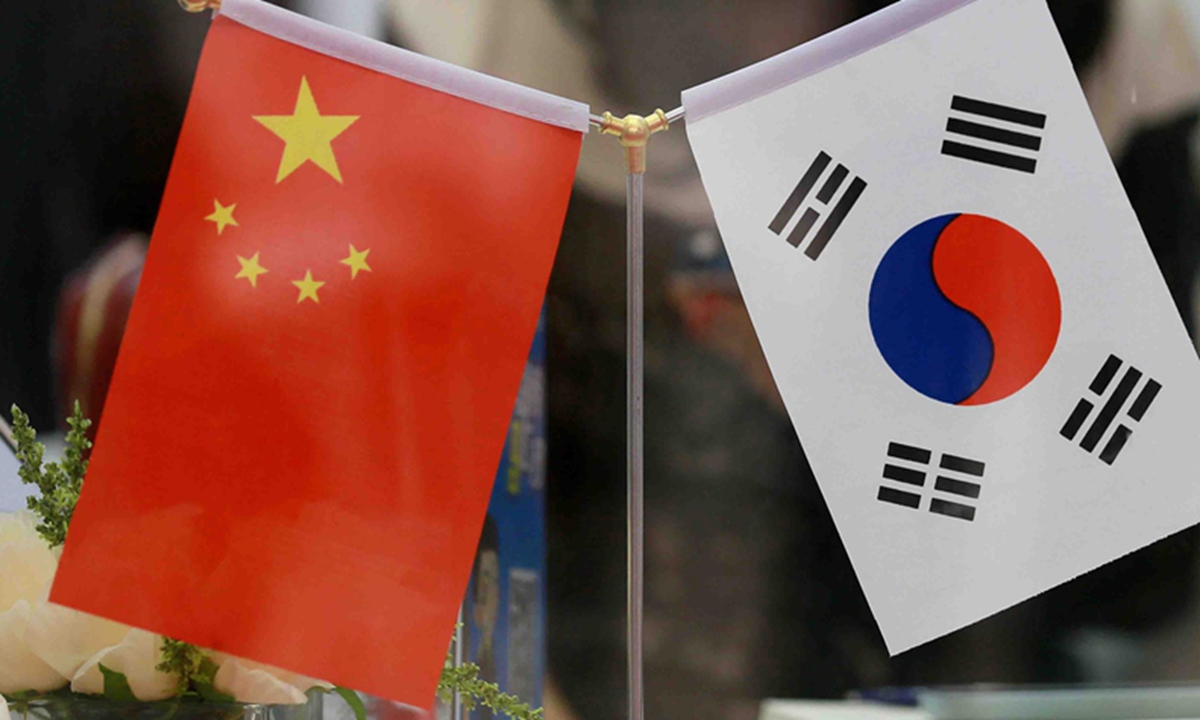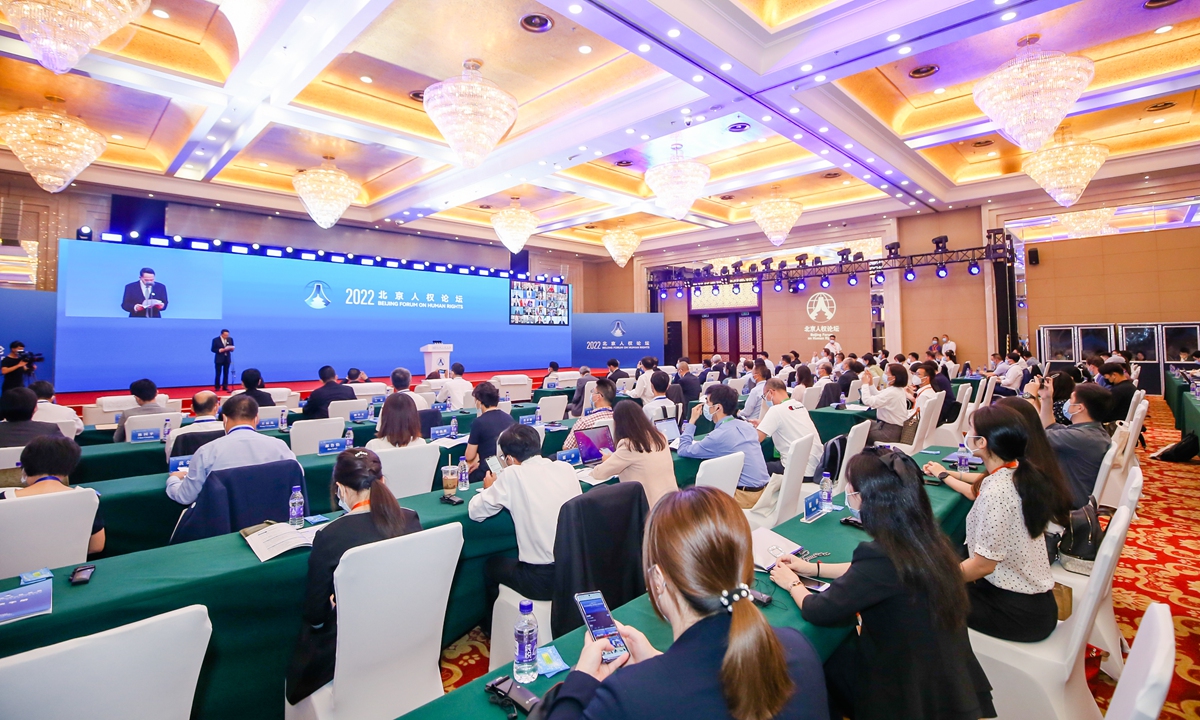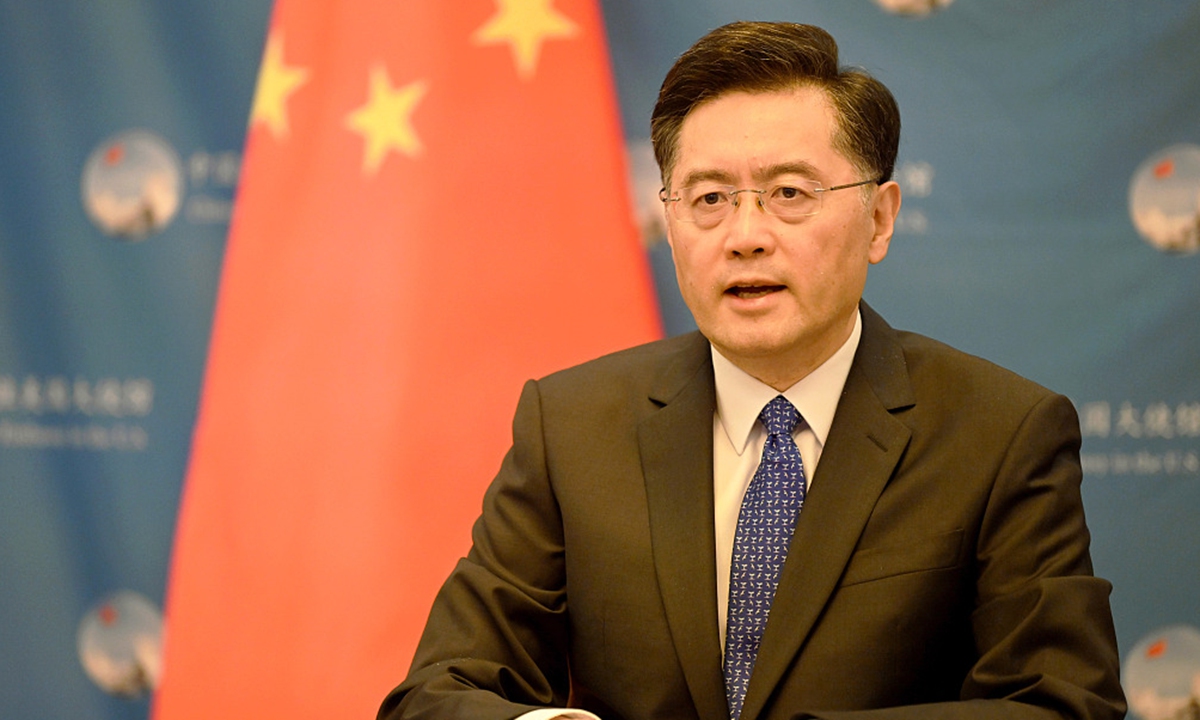There is a need for a rational or more balanced TIP measurement for Malaysia. MANY Malaysians are, by now, aware that Malaysia sits on Tier 3 of the US State Department’s recently released 2021 Trafficking in Persons report. This is the second year running that we’ve been placed in the bottom rank and it’s hard to accept or even fathom. Tier 3 countries are those which don’t adhere to the minimum standards and fail to make significant efforts to comply. Unbelievable as it may sound, Malaysia has been dumped together with the likes of Afghanistan, Myanmar, Iran, North Korea and Eritrea, among others. And Curacao, which only a search on the Internet revealed its location and informed me is a Dutch Caribbean Island. Naturally, Russia and China – the two enemies of the United States – grace Tier 3, too. No prizes for anticipating those rankings. StarPicks Looking for stability and growing earning capacity in a post-pandemic world While Malaysia isn’t exactly the paragon of labour laws, especially for migrant workers, we really shouldn’t accept this report as the gospel truth. Unfortunately, there’s not much we can do because this is a report from the very powerful US of A, but we should oppose it, nevertheless, even if the government’s silence is hardly exemplary. The TIP report may have irked us but we have little choice except to face the implications of it. After all, the US is a big trading partner at No 17 spot with bilateral trade in goods at US$71.4bil (RM317.8bil) in 2021. China has been Malaysia’s No 1 trading partner for the last 13 consecutive years hitting US$176.8bil (RM786.8bil) in 2021. The impact of this report is serious because any form of bans or seizure of our palm oil and rubber gloves, due to allegations of forced labour, would cost us millions and a dented reputation. The 634-page report even has a section on the powers of the US president, which allows him to penalise errant countries if he deems necessary, and his jurisdiction covers a wide area. Most of us would also not take the trouble to find the link to the lengthy report and read the contents in its entirety, including politicians and journalists who have freely offered their opinions. It’s hard to comprehend, especially when, with due respect, the Philippines is in Tier 1. In Tier 2, the notable countries include Benin, Bangladesh, Burundi, Congo, Guatemala, Ecuador, Gambia, Liberia, Mozambique, Niger, Sierra Leone, Guatemala, Cote D’Ivore (Ivory Coast), Nigeria, Rwanda and Lesotho. Tier 2 countries are those whose governments do not fully comply with the US Victims of Trafficking and Violence Protection Act’s minimum standards but are making significant efforts to bring themselves into compliance. The Tier 2 watch list includes Burkina Faso, Cameroon, Chad, Comoros, Djibouti, El Salvador, Ethiopia, Gabon, Eswatini (ex-Swaziland), Mali, Guinea and more. And Malaysia is in Tier 3 – far away from some of these countries, where human lives mean nothing. Something’s wrong here. So, how does the US define violations of human trafficking? They include forced labour, prostitution, imposition of debts, restrictions of movement, contract violation, wage fraud, assault, passport retention and threats of deportation. At page 364, the report says, “the government of Malaysia does not fully meet the minimum standards for the elimination of trafficking and is not making significant efforts to do so, even considering the impact of the Covid-19 pandemic on its anti-trafficking capacity; therefore, Malaysia remained on Tier 3.” But it concedes that “the government took some steps to address trafficking. The government amended its anti-trafficking law and Employment Act to include more expansive definition of forced labour, convicted more traffickers than the previous reporting period; issued more freedom of movement passes for identified victims in government-funded shelters, increased the number of interpreters and victim assistance specialists (VAS) to assist victim through judicial process, and adopted a five-year national action plan.” The sectors mentioned involved trafficking victims such as household workers, and those in palm oil and rubber manufacturing sectors. The TIP report hardly had the good grace to use the word “allegedly” in many instances in the report. Instead, it expects everything to be taken as fact without evidential backing. It harps a lot on employers holding the passports of workers. However, most Malaysian employers have long known that workers who run away are barely perturbed about losing these documents. The impression given is that their embassies issue replacements with minimum fuss. Employers have suffered huge losses signing contracts to recruit foreign workers – only to see them run away to another employer for higher wages. Certainly, our weaknesses need to be addressed. Many may be mere allegations and even cultural differences in the American interpretations and definitions, but there are many areas in which we need to improve. Fine-tuning the law and going after corrupt officials are surely matters of concern. Malaysian employers have expressed disappointment that the revisions of the Malaysian Sustainable Palm Oil (MPSO) certification scheme for palm oil plantations to improve workers’ rights, had not been acknowledged in the TIP report. The MPSO revisions included clear emphasis on worker rights. But why did the TIP report ignore these changes, invariably raising suspicion to whether there was a predetermined conclusion for the report on Malaysia? “The report is also clear that it does not take responses by non-governmental and commercial sectors into account. In other words, it is supposed to be a critique of government policies. “There is a problem with this approach; sectors that are doing the right thing – and even attempting to remedy the situation – are nonetheless penalised for their actions,” reads the rebuttal from Malaysian Palm Oil Labor Facts. It said the report “appears to be authored by the Fair Labor Association – an NGO that many of Malaysia’s plantation companies have engaged with directly to improve labour rights situation in Malaysia” and “in fact, the highlights that one of the recommendations that the TIP report made to Malaysia was greater engagement with NGOs – something the industry was already doing.” It pointed out that in one entry in the TIP report, it used “the same quote for three years running,” so, “does this mean the TIP report has just become something of a box-ticking exercise?” The TIP report is admittedly useful, but the US also needs to acknowledge that many steps have been taken to improve human and labour rights, especially in the palm oil sector. Malaysia also recently formally ratified the International Labour Organisation forced labour convention, known as Protocol 29, to commit Malaysia’s efforts to eliminate forced labour. Last year, Malaysia even signed up with Alliance 8.7, a global partnership to accelerate efforts to eradicate force labour, modern slavery and child labour around the world. Malaysia depends on oil, gas and palm oil, which have become the life savers of this country, and these commodities have helped improve the lives of many Malaysians, especially for those from the rural areas. The Gross Domestic Product from the palm oil industry, according to 2020 figures, was estimated at RM36.87bil. More than 650,000 smallholders and over a million people rely on the palm oil industry as their source of income. Malaysia is also a net exporter of crude petroleum as it exported over RM53bil worth of petroleum in 2020. But palm oil producers seem to have a harder time with continuously bad press and unfair tactics applied by European countries. Basically, this is just a bitter fight between palm oil, sunflower oil and soybean, of which the US is the world’s leading producer. Deforestation and its impact on animals have always been emotive issues used effectively against the palm oil industry – of which Malaysia and Indonesia make up the bulk of. In the peninsula, oil palm planted area in 2021 covered around 5.74 million hectare (45.5%), Sabah (26.6 %) and Sarawak (28%). Although Johor covers about 699,217ha, it is much lower than Pahang at 755,906ha, but the former has found itself in the spotlight recently. Palm oil is not even Johor’s main revenue source. No one has, however, reported that elephant paths have been set up in Johor plantations to ensure these animals have access to food, since planters are aware that if their homes are affected, their plantations, too, would be compromised.
Two recent issues – the claims by the Sulu heirs on Sabah and the TIP reports – have certainly affected Malaysia. Instead of jumping on the naysayer bandwagon, which seems fashionable to some of us, it’s time Malaysians rally to defend our country.
Join our Telegram channel to get our Evening Alerts and breaking news highlights
Wong Chun Wai
Wong Chun Wai began his career as a journalist in Penang, and has served The Star for over 35 years in various capacities and roles. He is now group editorial and corporate affairs adviser to the group, after having served as group managing director/chief executive officer. On The Beat made its debut on Feb 23 1997 and Chun Wai has penned the column weekly without a break, except for the occasional press holiday when the paper was not published. In May 2011, a compilation of selected articles of On The Beat was published as a book and launched in conjunction with his 50th birthday. Chun Wai also comments on current issues in The Star.HKSAR gov't "strongly disagrees" with US trafficking in persons report
in combatting TIP is most deplorable and unacceptable, a HKSAR government spokesman said in response to the US...
2018/06/29 Source: Xinhua | Author: Agencies | Column: HK/Macao/Taiwan
The US' so-called Uyghur Forced Labor Prevention Act (UFLPA), which has been widely described as an "evil bill," may be ...
Chinese space authorities announced the Long March-5B Y3 rocket's re-entry into Earth's atmosphere on Sun, the fifth statement it has made reporting the debris' position. How could the US say that they do not know where the debris would fall? globaltimes.cn/page/202207/12
It's a meteorite ... no, it's space junk - The Star
Related posts:


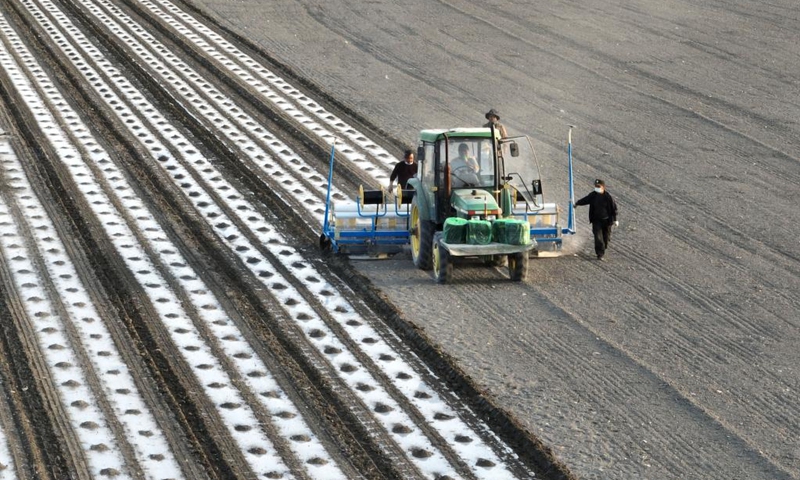
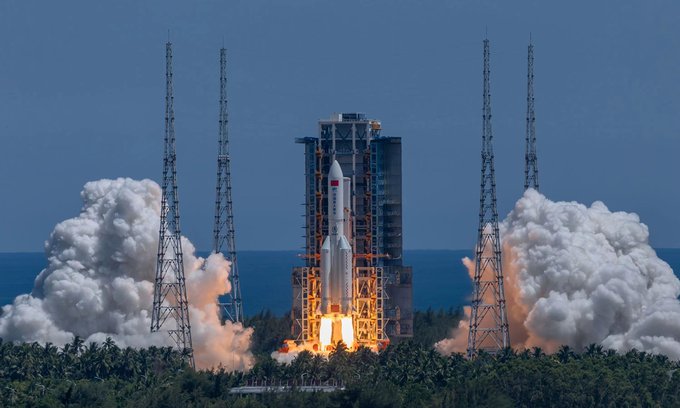




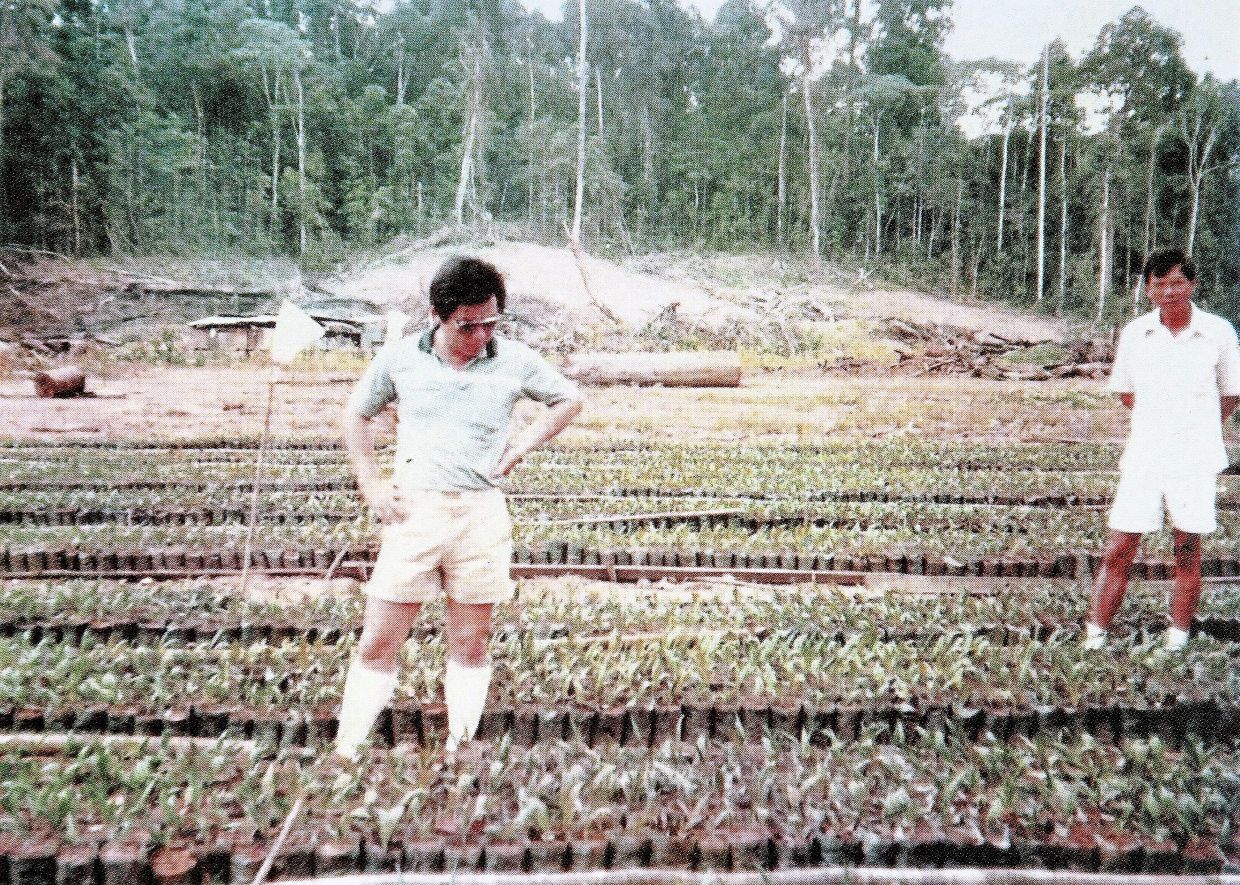 .
.








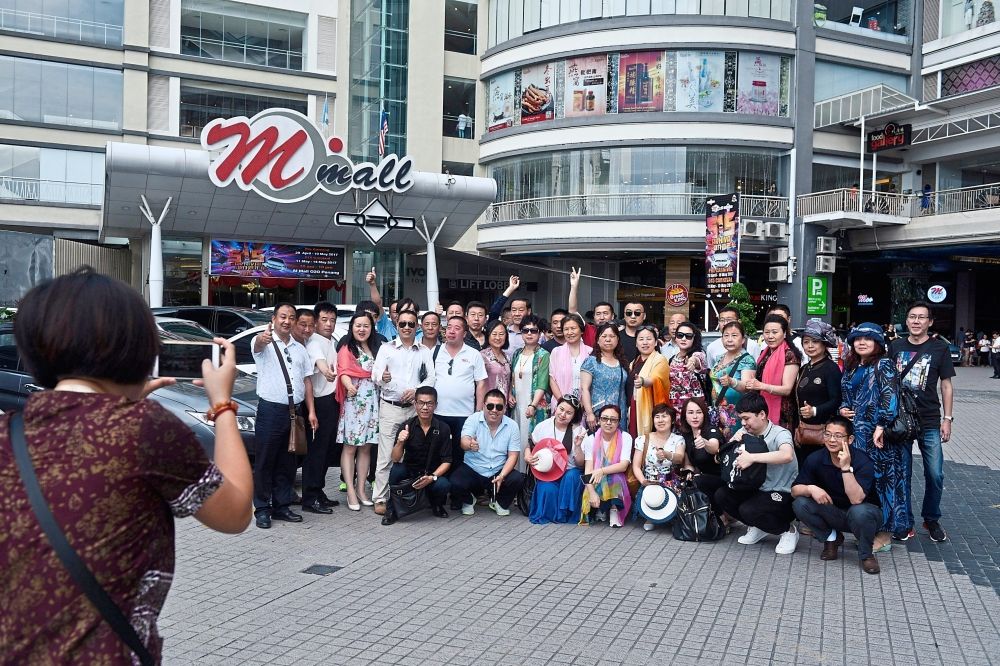








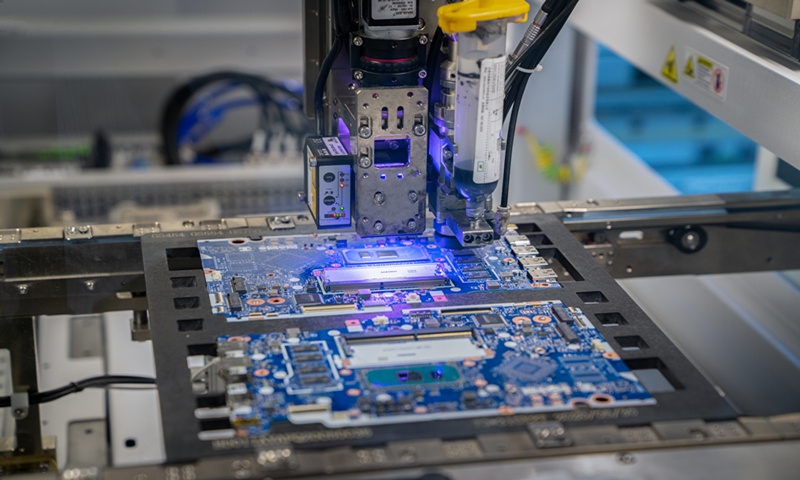
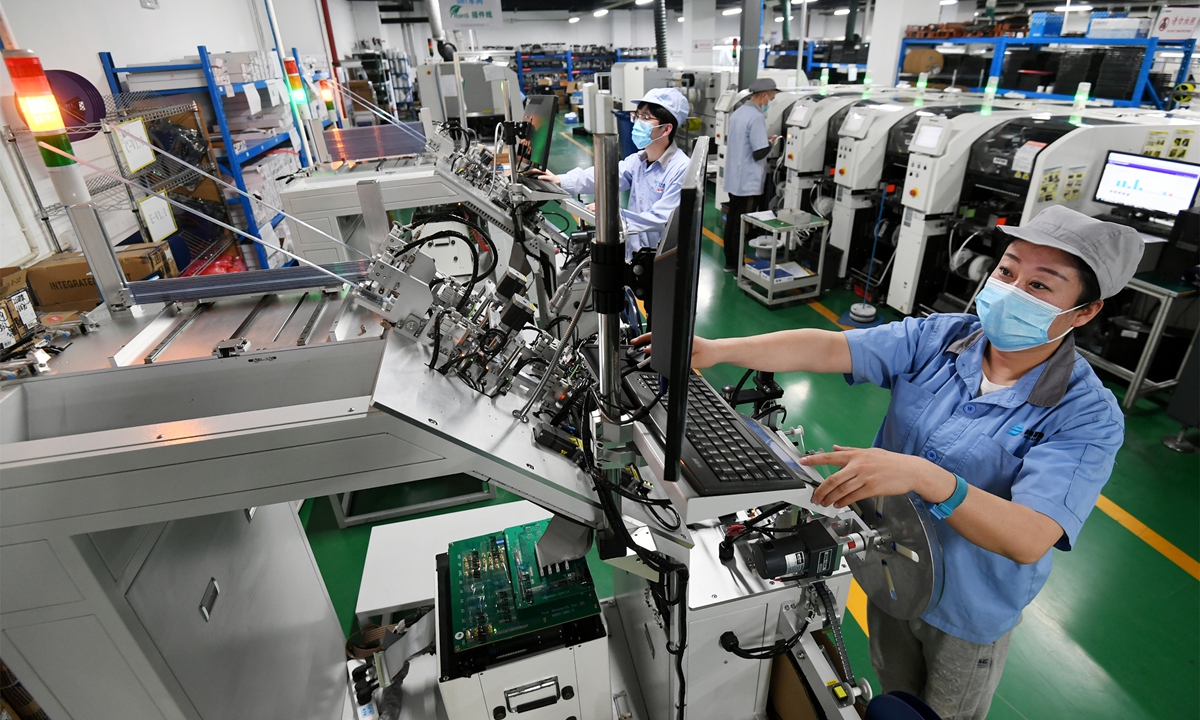 A worker checks a chip at Jade Bird Fire Co in Zhangjiakou, North China's Hebei Province, on March 27, 2022. Jade Bird makes firefighting products. Its self-developed Zhuhuan chip, which integrates fire detection capability, communication technology and integrated circuit technology, is widely used in China. Photo: VCG
China's rise
Despite US attempts to reshape the world's chip supply chains to a US-led one, China's chip industry is developing in a stable manner, be it the technologies or the markets, inspiring confidence among analysts that China will make breakthroughs in key chip technologies in about three to five years.
According to South Korean Customs statistics, South Korea's exports to China totaled $13.4 billion in May this year, while imports reached $14.9 billion, showing a deficit on the South Korean side for the first time, electronics information portal ijiwei.com reported.
One important stimulus for the situation is that China's exports of semiconductor products, which account for about one-sixth of the country's total exports to South Korea, surged 40.9 percent in the month, data provided by the Korea International Trade Association showed.
Besides, the rising popularity of China's electronic products like mobile phones has boosted demand for domestic chip products. For example, Chinese mobile phone brand Xiaomi recently launched a phone equipped with a China-made chip JR510, according to media reports.
On the technology side, Chinese companies are also making rapid progress. The country's chip giant Semiconductor Manufacturing International Corp (SMIC) said it had made a breakthrough in the first generation FinFET technology and entered mass production in Q4 of 2019, while the tech's second generation, rendered equivalent to the 7nm and 5nm manufacturing process of TSMC, is also in a period of pilot production.
SMIC's profits surged 147.7 percent on a yearly basis in 2021 in yuan's terms, the company's annual report showed.
According to Ma, China's sense of urgency for chip industrial independence has enhanced a lot over recent years. This is giving rise to strengthened input, from the industrial, research and university sides, into the industry, bringing positive results such as a surge in chip product categories from hundreds to thousands.
In terms of technologies, China is also "leaping in progress," he said, adding that though China still has several technological bottlenecks to break through, it should be able to solve those bottlenecks after 3-5 years of stable development.
Xiang predicted that the large-scale storage in China's chip industry will start in 2023, as compared with chips from Europe, the US and South Korea, China's domestic chips are of good quality, priced about 60 percent lower than that of other countries.
A worker checks a chip at Jade Bird Fire Co in Zhangjiakou, North China's Hebei Province, on March 27, 2022. Jade Bird makes firefighting products. Its self-developed Zhuhuan chip, which integrates fire detection capability, communication technology and integrated circuit technology, is widely used in China. Photo: VCG
China's rise
Despite US attempts to reshape the world's chip supply chains to a US-led one, China's chip industry is developing in a stable manner, be it the technologies or the markets, inspiring confidence among analysts that China will make breakthroughs in key chip technologies in about three to five years.
According to South Korean Customs statistics, South Korea's exports to China totaled $13.4 billion in May this year, while imports reached $14.9 billion, showing a deficit on the South Korean side for the first time, electronics information portal ijiwei.com reported.
One important stimulus for the situation is that China's exports of semiconductor products, which account for about one-sixth of the country's total exports to South Korea, surged 40.9 percent in the month, data provided by the Korea International Trade Association showed.
Besides, the rising popularity of China's electronic products like mobile phones has boosted demand for domestic chip products. For example, Chinese mobile phone brand Xiaomi recently launched a phone equipped with a China-made chip JR510, according to media reports.
On the technology side, Chinese companies are also making rapid progress. The country's chip giant Semiconductor Manufacturing International Corp (SMIC) said it had made a breakthrough in the first generation FinFET technology and entered mass production in Q4 of 2019, while the tech's second generation, rendered equivalent to the 7nm and 5nm manufacturing process of TSMC, is also in a period of pilot production.
SMIC's profits surged 147.7 percent on a yearly basis in 2021 in yuan's terms, the company's annual report showed.
According to Ma, China's sense of urgency for chip industrial independence has enhanced a lot over recent years. This is giving rise to strengthened input, from the industrial, research and university sides, into the industry, bringing positive results such as a surge in chip product categories from hundreds to thousands.
In terms of technologies, China is also "leaping in progress," he said, adding that though China still has several technological bottlenecks to break through, it should be able to solve those bottlenecks after 3-5 years of stable development.
Xiang predicted that the large-scale storage in China's chip industry will start in 2023, as compared with chips from Europe, the US and South Korea, China's domestic chips are of good quality, priced about 60 percent lower than that of other countries.


